In accordance with their own traditions and sometimes in addition to the (Gregorian) civil calendar, various nations celebrate their traditional or religious New Year's Day. Chinese New Year, Islamic New Year, traditional Japanese New Year, and Jewish New Year are a few of the New Year celebrations that take place in diverse nations. India and other nations continue to observe New Year's Day on various dates.
India is a country where people of many cultures, languages, castes, and faiths coexist using both solar and lunar calendar systems, and New Year is observed according to Vedic time. The New Year is observed on many days throughout the year. Every state in India observes traditions and customs unique to that region and celebrates the New Year in a manner that is unique to that state. All of the celebrations are based on the Hindu New Year, commonly known as the Vikram Samvat.
Here is the list of various New Year's Days celebrated around the year in the various Indian States.
Muharram- Islamic New Year
The Islamic New Year, also known as Hijri New Year or Arabic New Year, commemorates the start of a new Hijri year. The first day of Muharram, the first month in the Islamic calendar, is recognised as the start of the year. The Islamic New Year officially begins on the first of the month of Muharram, which is the first month in the Islamic calendar.
The Hijra, or the migration of Muhammad and his followers from Mecca to Medina in 622, is commemorated on this day. Not a religious holiday, but a cultural one, is observed on this day. By praying in the mosque, people observe the holiday. They enjoy traditional dinners and spend the day with their friends and family, sharing greetings and presents.
Losar- Tibetan New Year
The most significant event in the Tibetan calendar is the Tibetan New Year, often referred to as Losar. It coincides closely with the conventional Chinese New Year. According to the Gregorian calendar, it corresponds to a day in February or March. Typically, the festival season lasts for 15 days.
The Tibetan terms lo and sar, which indicate new and a year, respectively, are the origin of the word Losar, which signifies New Year. The Tibetan calendar states that it begins on the first day of the first month and lasts until the fifteenth day. Daily events are planned, but the three initial days are when the biggest celebrations take place. Religious rituals are also essential components of Tibetan New Year celebrations. Tibetans dress to the nines for Losar, visit temples to worship and give presents to the monks.
Nowroz- Persian New Year
The Persian or Iranian New Year, known as Nowruz, is observed by Parsis all over India. For Zoroastrians, it is a holy day that also heralds the start of spring in the Northern Hemisphere. In Persian, the phrase Nowruz literally means "new day." On the occasion of Navroz, people dress in new attire and adorn their homes. In India, Gujarat and Mumbai still have sizable Parsi populations that enthusiastically celebrate Navroz.
The Shahenshahi calendar, which the Parsi community of India uses to mark the new year and does not take leap years into account, has shifted the celebration from its original date of the vernal equinox by 200 days. The Parsi New Year is observed in India between August 16 and 17.
Gudi Padwa- Marathi New Year
Gudi Padwa, the customary new year for Marathi and Konkani Hindus in the subcontinent, is celebrated in Maharashtra in spring. According to the Hindu calendar, it is observed in and around Maharashtra on the first day of the month of Chaitra. People prepare delectable sweet and savoury delicacies, dance, and decorate their homes' floors with rangolis to mark the occasion of Gudi Padwa.
As part of the Gudi Padwa festivities in Maharashtra, Gudhi flags are also raised on the right side of the homes' main entrances. The flag is made of a piece of vibrantly coloured fabric that resembles a silk scarf tied to the top of a bamboo stick. Neem and mango leaf boughs, as well as a floral garland, are also fastened to the top end of the stick. The victory or accomplishment-symbolizing pot or Kalash that tops the stick can be made of silver, bronze, or both. The flag, known as Gudi, is believed to ward off evil and bring wealth and good fortune into the home where it is flown.
Bohag Bihu- Rongali (Assamese New Year)
The Buddhist and Hindu calendars are used in other parts of the Indian subcontinent, East Asia, and South-East Asia, where the Assamese New Year is known as Rongali or Bohag Bihu. Bohaag Bihu is observed on the first day of the first month of the Bohaag solar calendar, which falls in the middle of April according to the Gregorian calendar.
The new year officially begins on January 1st or Bohag. The festival is now often referred to as "Bohag Bihu." In addition to Bohag Bihu, the event is also known as Rangoli Bihu because the word Rangoli is derived from the word "Rong," which symbolises happiness and joy in life.
Cheti Chand- Jhulelal Jayanti/ Daryalala Jayanti (Singhi New Year)
Sindhis celebrate the New Year as Cheti Chand, Jhulelal Jayanti (birth), or Dariyalal Jayanti (New Year's Day). The Cheti Chand festival is observed on the first day of the Chaitra month in accordance with the Hindu calendar. Jhulelal is regarded as a manifestation of the water god Lord Varun. The Sindhi community was given justice by Jhulelal, who also protected them against the Muslim King Mirik Shah. The event is observed by members of the Sindhi community through various ceremonies, fairs, feasts, social gatherings, etc.
Pana Sankranti- Odisha New Year
Pana Sankranti, also known as Maha Vishuba Sankranti, is the Hindu new year's day event celebrated in Odisha, India. On this day, the sun enters Mesha Rashi, or sidereal Aries. Typically, it occurs on April 14 or 15. The solar year and the month of Baisakh both begin on Maha Visuva Sankranti. Additionally known as Jala Visuva Sankranti, It is known as Jala Sankranti in northern India, Sakkar Pongal in the south, and Pana Sankranti in Orissa, which is named after Pana, the major beverage served during this celebration.
Baisakhi- Punjabi New Year
The Sikh new year, usually referred to as Vaisakhi or Baisakhi, commemorates the founding of the Khalsa Panth of warriors under Guru Gobind Singh in 1699. More lately, the Sikh diaspora has begun to observe this holiday all across the world. According to the Punjabi calendar, Vaisakhi is the Punjabi people's New Year. It is also a harvest festival celebrated throughout Punjab.
In accordance with Hindu beliefs, it marks the start of the New Solar Year, and we frequently refer to it as the New Agricultural Year. The holiday is enthusiastically celebrated with great ceremonial fun and frolic in both rural and urban places. The prime motive for holding this festival is to reflect the feelings of the farmers who grow ripened rabi crops. According to the Nanakshahi Calendar, this day, which is often marked on the 13th or 14th of April, ushers in the month of Vaisakha.
Losoong- Sikkimese New Year
One of Sikkim's most well-known and traditional celebrations, Losoong or Sikkimese New Year, is observed in December. For the people of Sikkim, it signifies the conclusion of the harvest season and the start of the New Year. One of the festival's main draws is the Chham dance, which is also known as Sonam Losar, or the farmer's New Year.
Ugadi- Telugu New Year
For those who live in the Deccan region of India, Ugadi Festival is the Telugu equivalent of the New Year. It occurs on the Chaitra Suddha Padyami or Thidi. Calendar Chaitra and Suddha Padyami are the first two months and days of the Hindu new year, respectively. The Sanskrit word Yugadi, which means to age and Adi, which means beginning, is where the word Ugadi originates. Yugadi, then, refers to the start of a new year. The Chandramana system (Shalivahana Shaka) states that Chaitra Shuddha Prathipade is the day on which Telugu New Year occurs.
According to Hindu mythology, the universe was created on Chaitra Shuddha Prathipade by Lord Brahma. This day has since been known as New Year's Day. People get up early on Ugadi Day to take head showers, dress in new clothes, and celebrate. Following that, they embellish the temples with various fresh flowers and mango leaves. The populace also utilises fresh mango leaves and flowers, particularly jasmine flowers, to decorate their homes and Pooja Mandirs.
![birthday occasion]() Birthday Gifts
Birthday Gifts
![anniversary occasion]() Anniversary Gifts
Anniversary Gifts
![women]() Women
Women
![men]() Men
Men
![Couples]() Couples
Couples
![Couples]() Wedding Gifts
Wedding Gifts

 Birthday Gifts
Birthday Gifts
 Women
Women
 Men
Men
 Anniversary Gifts
Anniversary Gifts
 Wedding Gifts
Wedding Gifts
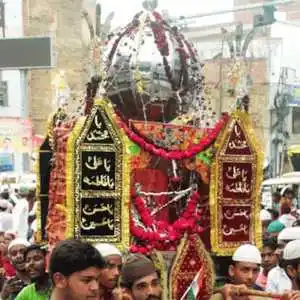


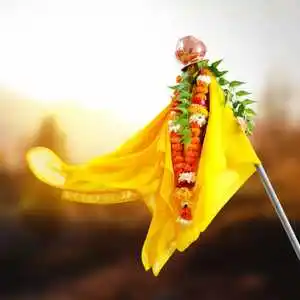
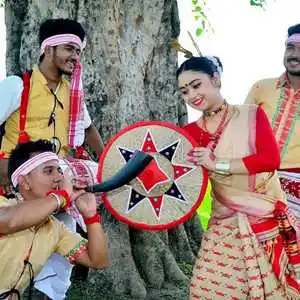
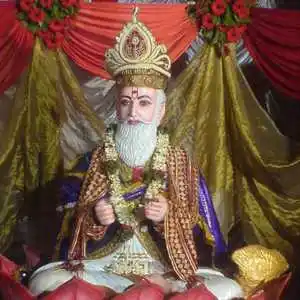
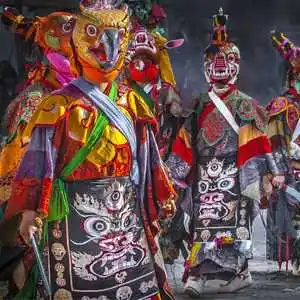
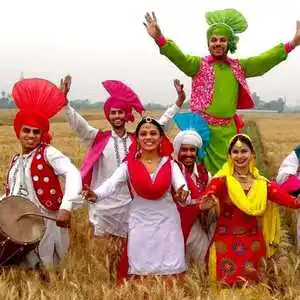
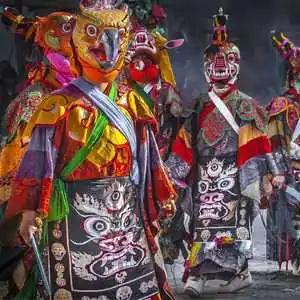
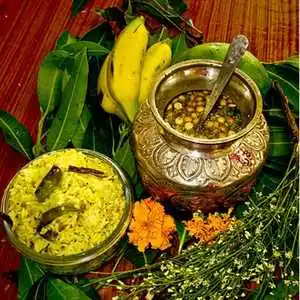
 We now support international payments
We now support international payments
